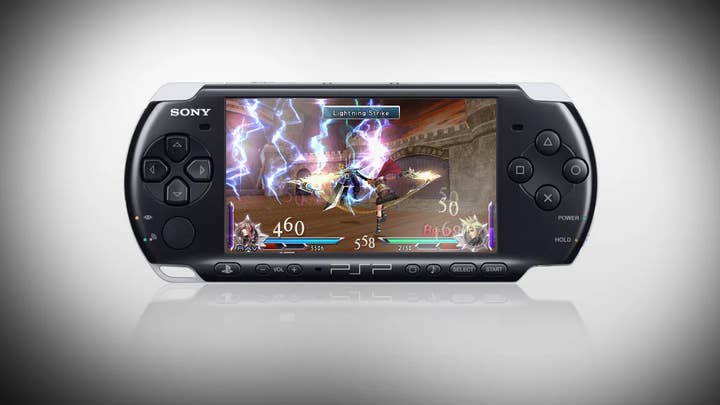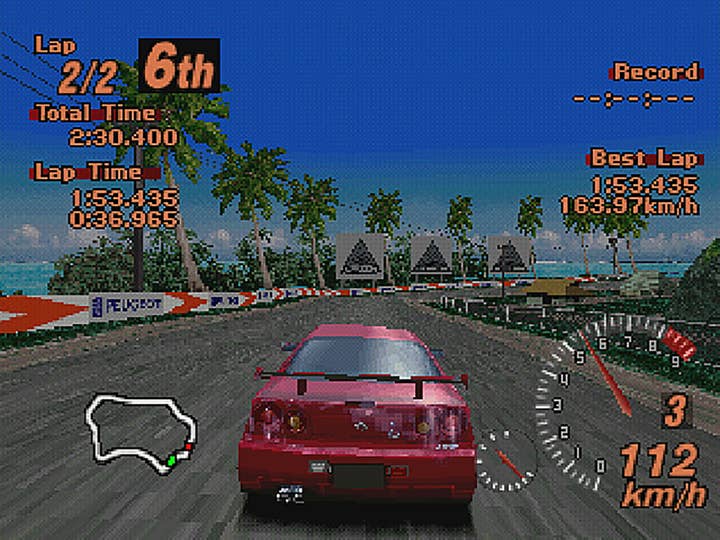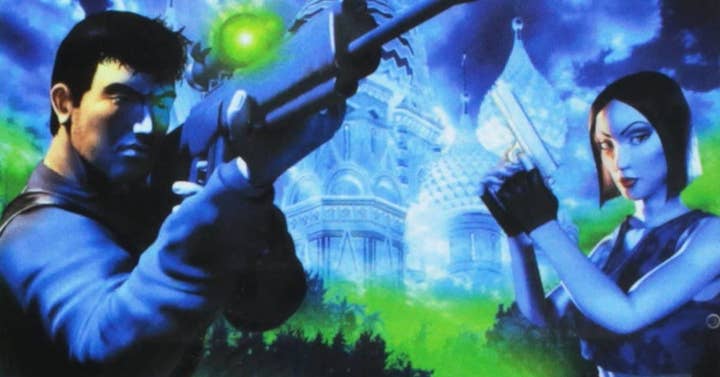Sony has a responsibility to preserve its gaming history | Opinion
As the shutdown of legacy storefronts looms, Sony's disinterest in preserving earlier generations of PlayStation software threatens to hollow out the medium
Whether it happens this summer, as is widely rumoured, or at some point in the near future, it's an inevitable event; Sony is going to shut down the digital storefronts for its legacy consoles.
The rumour mill suggests it happening all at once, with the PS3, PSP and PS Vita stores all going offline simultaneously -- there's a degree of shared backend infrastructure which makes this particularly likely, I'm told. Even if matters are drawn out a little, though, there's no real doubt in anyone's mind about the short- to medium-term fate of those stores -- and sadly, not a whole lot of doubt about the fate of the many, many games that are currently available only through those platforms.
The closure of these three stores will shut off regular consumers' access to a giant segment - almost 20 years - of gaming history
It's perhaps worth taking this opportunity to pour one out for Sony's handheld ambitions, for which this would be the final nail in the coffin -- for now, at least. It's perhaps both appropriate and telling that the rumoured closure of the PSP and Vita stores comes in the week when Capcom launches the enormously anticipated latest title in its Monster Hunter franchise. That franchise grew to its current prominence on the PSP and was arguably the series that made Sony's handheld platform viable long-term in the Japanese market. The move to Nintendo's Switch for the latest iteration, Monster Hunter Rise, was inevitable, and stands in stark testament to the extraordinary success Nintendo has had with a console form factor Sony was forced to abandon.
A couple of sighs and longing glances aside, though, I don't think Sony will spend much time thinking wistfully about what might have been. The company isn't given to spending too much time looking backwards, and the roaring success of the PS4 was more than compensation enough for the disappointment of Vita.
As it pulls down the digital shutters on its legacy storefronts, though, Sony's tendency not to spend too much time looking backwards presents a problem of its own. It's hard to measure just how much software is going to disappear into the ether with this store closure -- hundreds of games for the PS3, PSP and Vita platforms will become very difficult for anyone other than devoted collectors to access, while hundreds of PlayStation Minis (digital-only titles originally launched for the PSP) and PSone Classics (digital versions of original PlayStation games) will no longer be available in any format.
In effect, the closure of these three stores will shut off regular consumers' access to a giant segment of gaming history -- many hundreds of games spanning the period from Sony's market entry in late 1994 through to the PS4 launch in 2013. That's an almost twenty-year period, one which included a host of cultural and creative landmarks for videogames, many of them on Sony's platforms.

On one hand, of course, this is a strong argument for people who care deeply about access to legacy or retro games investing in physical copies of those games -- but the ability to experience, enjoy and understand the history of the medium shouldn't be restricted only to those with the foresight to buy physical copies decades ago, or the resources to find and afford them today. Moreover, many of those titles didn't even have physical editions; with the storefronts gone, they effectively cease to exist everywhere except the remaining consoles that have them installed.
Sony seems keen enough on the idea of reminding players of the existence of PlayStation's history; it just doesn't see value in preserving it
Sony's relationship with games of earlier eras, and with its own role and responsibility as curator and archivist of those eras, often seems distinctly ambivalent. Whenever the question of PlayStation's back catalogue comes up, it's not long before someone quotes Jim Ryan's comments from 2017, when he expressed disbelief at the idea that anyone would want to play the PS1 and PS2 versions of Gran Turismo. It may seem unfair to keep knocking the company with statements made by a single executive years ago, but the reason that these words still have currency is because Sony hasn't done anything, in word or deed, to refute the idea that Ryan's mindset is shared across the company's top levels.
Sony's disinterest in its own back catalogue and in the history of PlayStation software stands in stark contrast to its rivals' attitudes. Nintendo regards its old games as a treasure chest, both figuratively and literally; it regularly finds new ways to monetise them and gleefully digs into its own history to stoke the nostalgia of its players. Microsoft, meanwhile, has done an extraordinary job with backwards compatibility across the Xbox catalogue -- and one of the underappreciated aspects of Game Pass, I think, is how appealing and interesting it has made back catalogue games dating all the way back to the original Xbox, just as services like Netflix have often given new leases of life to old movies and TV shows they surface for their users.
Sony's reticence over its older games also contrasts dramatically with the cultural resurgence of interest and nostalgia around PSone-era games, which has seen hobbyists engage in labours of love to recreate those kinds of experiences -- right down to the wobbly textures and wooden controls.
It's worth pointing out that in some ways, it's not entirely fair to compare Sony's situation to its rivals. The question of IP ownership is a major issue here -- Nintendo actually owns the IP for a lot of the classic titles from its legacy platforms, for example. In contrast, the majority of the games people think of most fondly from the PS1 and PS2 eras are third-party titles, which raises all manner of legal, technical and commercial issues.
Technical issues are also somewhat tougher for Sony thanks to the quite esoteric designs of its earlier consoles -- comparing the challenge of creating reliable emulation for PS1, 2 and 3 games to what Microsoft has done with Xbox and Xbox 360 games is very much apples to oranges.

None of this, however, is sufficient excuse for Sony's lack of interest in preserving its own back catalogue. Much of the problem, I suspect, is that Sony views this exclusively as a commercial decision, and has little or no interest in the idea that it has a cultural responsibility to the medium it profited from so handsomely, or even in the argument that the PlayStation brand as a whole is devalued and hollowed out by the erasure of its past.
Sony isn't above diving into players' nostalgia when it suits it, of course. Surprisingly excellent PS5 bundled title Astro's Playroom is essentially a warm blanket of PlayStation nostalgia from start to finish -- but perhaps in keeping with Sony's own self-image, it's an homage to the hardware heritage of the systems, handing out exquisitely detailed models of weird, niche accessories (the PSP GPS add-on, anyone?) while relegating landmark games to blink-and-you'll-miss-it easter egg appearances. Sony seems keen enough on the idea of reminding players of the existence of PlayStation's history; it just doesn't see the value in actually doing the work to preserve that history in any meaningful way.
A change of attitude in this regard is sorely needed -- and it has to be one that stems from a recognition that Sony's enormous success creates a certain degree of cultural and social responsibility, one that transcends cold commercial decision making to some extent. This isn't a task that can be undertaken by enthusiastic volunteers (at least not legally); only Sony can actually curate and preserve its sprawling segment of the medium's history.
I honestly don't imagine that creating robust backwards compatibility tools and the ability to access the PlayStation's back catalogue from new devices would actually be something that paid for itself commercially -- at least not directly -- but it's something Sony ought to do anyway. It should do it in part to live up to its responsibility to the medium upon which it thrives, and in part to create a broader halo around the PlayStation platform that firmly cements its position at the heart of gaming history.
I'm not sure the value of that could be quantified easily on a spreadsheet -- but neither could the loss to this creative medium if key, defining decades of its output are lost because a handful of executives can't imagine enough people wanting to play PS1 and PSP games to make saving them worthwhile.

